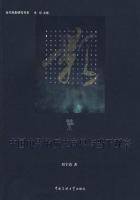pay a visit to sb.拜访某人/on a visit到(某地)访问/visit a doctor看医生,看病/brief visit短暂的访问/friendly visit友好访问/(in)formal visit正式(非正式)访问/official visit正式访问/state visit国事访问/on a visit在访问中/visit the museum参观博物馆
visitor访问者/guest客人
on拜访/see看/interview采访,会见/meet会见/welcome欢迎/see off送行/greet问候
——What did your son say in the letter?
He told me that he___the Disney World the next day.
A.will visit B.has visited
C.is going to visit D.would visit
(2002年北京市东城区)
解析句意:——你儿子在信上说什么?——他告诉我他后天将参观迪斯尼世界。答案为D。该句要用过去将来时,即宾语从句的时态,要与主句保持一致。
vis(看,观看)+it+or(表示人)参观者
visitors’book来客签名簿/visitors not admitted游客止步
play volleyball打排球
blocking拦网/one—man block单人拦网/to shut out拦网成功/block point拦网得分/net player前排队员/back player后排队员/blocker拦网队员/attacker扣球手;攻手/touch the net触网/outside出界/right of service发球权/change of service换发球/loss of service失去发球权/net ball擦网球/set up二传/setter二传手/pass传球/keep sb.waiting让人(久)等/wait at(on)table伺候开饭/wait for(sb.to do sth.)等候(某人做某事)/wait in(out)在……里面(外面)等/wait one’s turn等轮到自己
Would you mind___a few minutes?
——No,not at a11.
A.wait B.to wait C.waited D.waiting
(2000年重庆市)
解析句意:——你介意等几分钟吗?——不,一点也不。答案为D。
mind doing为固定搭配,doing为动名词形式。
wait等待的是机会或时间(即肉眼看不到的东西),wait for等待的是人或交通工具。
wake up醒来/wake sb.up叫醒/wake up sb.激发人,激励人/wake(up)to认识到,意识到
She asked him——her up at six o’clock in the morning.
A.wake B.to wake C.waking D.woken
(2002年北京市朝阳区)
解析句意:她要求他明天早上六点叫她起床。答案为B。此句为固定句型ask sb.to do sth.。不定式to do sth.作宾补,补充说明sb.要做的事情。
take(have)a walk散步/take sb.out for a walk带着某人去散步/walk ahead走在前面/walk along the street沿街走/walk straight一直走/walk through the forest穿过森林/on a walk在散步
on the wall住墙上/the Great Wall长城
want sb.to do sth.想让某人做某事/want to do sth.想做某事/be in want of需要;缺乏/want a go要试一试/want sth.done想完成某事/meet a want满足需要/want badly非常想要
I want to...是直接表示自己“想要……”的心情,所以不是有礼貌的表示法,有礼貌的说法是“I’d like to...”或“May I...?”等。如:I’d like to have another glass of milk.我想再采一杯牛奶。
keep warm保暖/warm weather温暖的天气/get warm取暖/warm(sth.)up变暖和;加热/warm to sth.(sb.)对……兴奋(热心,有好感)
be washed in sweat满是汗水/wash against拍打;冲击/wash away(off)冲走,冲垮/wash sth.to把……冲到某处/wash up洗刷餐具;筋疲力尽
on watch值班/on the watch留神着/keep watch(for,against)放哨,值班;提防j(keep)watch over照管。看护/watch out(for sth.)当心,注意/watch sb.do(doing)sth.看到某人做某事/watch for留心寻找/watch走路小心;谨慎小心
以ch结尾的名词复数要加es,如watches,但当字母组合ch发[k]音时,词尾要加s,如stomachs。
by water(=by ship)乘船/fresh water淡水/get into deep(hot)water陷入困境/throw cold water on给……泼冷水
Would you like some——?
No,thanks.I’m not thirsty at a11.
A.bread B.water C.cake D.tomato
(2002年山西太原)
解析句意:你想来一些水吗?——不,谢谢。我一点儿不渴。答案为B。some可修饰可数名词,也可修饰不可数名词,C、D为可数名词,排除。
只剩下A、B两项。下文答句中thirsty作“渴”讲,B项water才与之相关,答案应选B。
water是不可数名词,当water后加“s”表示(海、河、湖等)大量的水、海,如:the blue waters of the Atlantic大西洋的蓝色水域;Mexican waters墨西哥海域。
by the way顺便说;顺便问一下/find one’s way找到去某地的路/on one’s way to在去某地的路上/show the way指路/all the way一路上;远道/by way of经由……/feel one’s way摸索着前进/get out of the way走开,让开/lose one’s way迷路/lose way(船等)减速,停/in a way从某种意义上说/in any way无论如何/block the way挡路/give way让路/go one’s(own)way我行我素/fight one’s way奋力前进/inch one’s way缓步前进/lead the way带路/workable way可行的方案/be half way through完成一半/go the wrong way走错路/in no way决不/stand in the way of妨碍/by way用/out of the way不挡道,不碍事/Milky Way银河/no way无路,无办法/the right way正路,正确途/highway公路
one—way单向的/railway铁路/freeway高速公路/halfway中途
The visitors Haikou___April 29.
A.reached,on B.came to in
C.arrived,on D.got at,on
(2001年海南省)
解析句意:答案为A。reach为及物动词表示“到达”,reach=arrive in(at)=get to。on在这里表示时间。on April 29意思是:在4月29日。
be weak in在……弱;在……差/in a weak voice用微弱的声音
week(周,星期)+day工作日
on weekday在平日
be welcome to do欢迎某人做某事/be welcome to sb.某人欢迎某事物/(be)welcome to someplace欢迎某人来到某地/be welcome to sth.欢迎使用/give(receive)a warm welcome给予(受到)热烈欢迎/welcome sb.(to someplace)欢迎某人(来某地),去迎接某人
①welcome 是及物动词,也可作形容词,当表示“欢迎某人做某事”不用。welcome sb.to do sth.这一错误的动词结构,应用其形容词结构。sb.be welcome to do”表达。②说“某人受到欢迎”不可用形容词结构而应用动词或名词结构,如:王先生在机场受到热烈欢迎。Mr Wang was warmly welcomed at the airport.或Mr Wang received a warm welcome at the airport.而不说Mr Wang was welcome at the airport.(因为要强调的是动作而不是状态)
as well as和……一样好/do well in在……方面干得好,有进步/may as well do最好做……/may well do尽可做,有理由做……/speak(think)well of高度评价,赞扬……/wish sb.well祝某人好运/成功
Let’s enjoy the song Yesterday Once More.It sounds___.
A.well B.sadly C.nice D.bad
(2003年南通市)
解析句意:让我们欣赏歌曲《昨日重现》吧!它听起来很好。答案为c。
well和sadly都是副词,sound为系动词,后面必须接形容词,排除A、B,“Yesterday Once More”是一首优美的歌曲,应排除D。
What about...?……怎么样?What do you think of...?你认为……怎么样?/What...for?为何……?/What If...?似如……又怎么样?What is...1ike?……怎么样?
——does your father do?
He is a worker.
A.Which B.Who C.What D.HOW
(2001年北京市海淀区)
解析:你父亲干什么工作?——他是一位工人。答案为C。what是疑问代词。What does your father do?是问职业。该句还可写成:What is your father?或What’s your father’s job?
what和which之前不用all。“他所说的我全都知道”应说I know all(that)he said.而不应说I know all what he said.
1.___shall we meet in the park?
What about half past eight?
A.What B.When C.Where D.Which
(2002年北京市西城区)
解析句意:——我们几点在公园见面?——八点半怎么样?答案为B。
答句回答的是时间,故问句应用when。
2.He is not sure____.
A.when leaves B.when leave C.when to leave D.when left
(2001年广东省)
解析句意:他不确定什么时候离开。答案为c。动词不定式与疑问句(包括疑问代词和疑问副词)连用,构成动词不定式短语。有时可同宾语从句互换。如:I don’t know what to say.相当于:I don’t know what I can say.我不知道要说些什么。
现在完成时。
例:(X)When have you lost your wallet?(√)When did you lose your wallet?
你的钱包是什么时候丢的?
Excuse me。is the nearest bookshop?
——Go down the street and turn left at the second corner.
A.how B.what C.where D.who
(2003年北京市海淀区)
解析句意:打扰一下,请问最近的书店在哪儿?——沿着这条街向前,在第二个路口向左拐。答案为C。how是“怎样,多少”的意思,what是“什么”的意思,where是“哪儿”的意思,who是“谁”的意思。本题考查疑问词的辨析,由上下句意思,只有选择where才正确。
The policeman asked the boy___.
A.where was his mother B.where his mother was
C.where his mother is D.where is his mother
解析句意:警察问那个男孩他的母亲在哪儿。答案为B。A、D语序错误,C时态不符合。
whether...or...是……还是……/whether...or not不论是
Lucy failed in the mid—term exams——she didn’t take her subjects seriously.
A.whether B.that C.because D.until
(2003年南通市)
解析句意:露西在期中考试中失败了,因为她没有认真对待她的科目。
答案为C。whether是“是否”的意思;that无具体意义;until是“直到”的意思;because是“因为”的意思,由上下文意思,只能C项符合题意。
①动词doubt在否定句或疑问句中,后跟连词that,如果在肯定句中,其后用连词whether或if。例:I doubt if that was what he wanted.我怀疑那是否是他要的东西。②主语从句、宾语从句、同位语从句如果由连词if引出,均不可加or not;由whether引出,可加or not或不加。例:I don’t know whether the information is true or not.我不知道信息是否正确。
1,He didn’t tell me____.
A.which floor did he live on
C.which floor he lived
B.which floor he lived on
D.which he 1ived on
(2000年四川省)
解析句意:他没有告诉我他住在哪层楼上。答案为B。which引导宾语从句,live为不及物动词,必须加上on;A语序不对;C缺介词。
2.——is your car?
The red one in front of the tree.
A.Which B.What C.Where D.Whose
(2001年呼和浩特)
解析句意:哪辆车是你的?树前面的那辆红车是我的。答案为A。which意为“谁的”,用于指物或人,有名词和形容词性。如:This is my cap.Which is yours?这是我的帽子,哪个是你的?which在作疑问代词时,是一定范围的人或物。如:Which sport do you like the best?你最喜欢哪一类运动?(限制在一定的范围之中)
all the while一直;始终/once in a while偶尔;有时
1.John fell asleep——he was listening to the music.
A.after B.before C.while D.as soon as
(2002年河北省)
解析句意:约翰在听音乐时睡着了。答案为C。after表示“在……之后”,before表示“在……之前”,as soon as表示“一……就……”,只有while符合题意,表示“当……时候”。
2.I’m going to Hangzhou for a holiday this weekend.
——you are there,can you buy me some green tea?
A.Because B.If C.While D.Mter
(2000年北京市)
解析句意:我这周要去杭州度假。——当你到那儿时,能帮我买些绿茶吗?because表示原因,if表示是否,after表示“在……之后”,都不符合题意。答案为C,表示与此同时。
as a whole总体上,作为一个整体/on(upon)the whole总体看whole一般只作前置定语用,不可用来修饰专有名词。不说the whole of China,而是说all China或the whole China。
现代英语中,口语一般不用whom,而用who。
当介词的宾语用时,不能用who,而仍须用whom。
——radio is this?
It’s mine.
A.What B.Where C.Who
D.Whose
(2002年北京市朝阳区)
解析句意:这是谁的收音机?——它是我的。答案为D。
whose是物主代词,意为of whom/which,用在疑问句和关系从句中。who’s是who is或who has的缩略式。例:I’ve got a cousin who’s never been to London.我有个表兄,他从来没去过伦敦。
That is why...那就是……的理由/The reason(why)that...……的原凶就是……/Why(not)do……?为何(不)……?
Father asked me——.
A.why didn’t 1 ride my bike
B.why I didn’t ride my bike
C.why did I not ride my bike
(2001年四川省)
解析句意:父亲问我为什么不骑我的自行车。答案为B。本题考查的是疑问副词“why”引导的宾语从句,用陈述语气。又如:I’Il tell you why I didn’t ask You to come.我会告诉你我为什么不要你来。
far and wide普通,广泛
against one’s will违背意愿/at will随意地
1.Do you know during the coming summer holidays?
A.what will Tom d0 B.what did Tom do
C.what Tom will do D.what Tom did
(2003年北京市海淀区)
解析句意:你知道汤姆在即将来临的暑期做什么吗?答案为c。本题考查时态和复合句中疑问句的语序.由“即将来临的暑期”可判断用将来时,排除B、D,宾语从句中的语序用正常语序,助动词不前提,所以选C。
2.一Can you guess if they——to play basketball with us?
一I think they’11 come if they——free.
A.come,are B.will come,will be
C.will come,are D.come,will be
(2001年辽宁省)
解析句意:——你猜他们是否会来和我们打篮球?一一我想他们如果有空会来的。答案为C。上句的意思为“是否”,它引导的是宾语从句,下句的意思为“如果,假如”,它引导的是状语从句。















